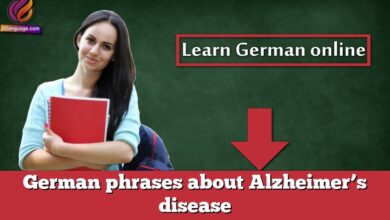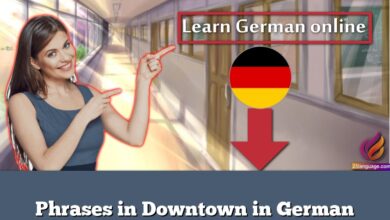Adjectives and Adverbs in German

Adjectives and Adverbs.Certainly! Here are some examples of adjectives and adverbs in German, along with their English translations:
| German Phrase | English Translation |
|---|---|
| Das Auto ist sehr schnell. | The car is very fast. |
| Sie singt wunderschön. | She sings beautifully. |
| Der Film war wirklich gut. | The movie was really good. |
| Er spricht ziemlich leise. | He speaks quite softly. |
| Das Essen war unglaublich lecker. | The food was incredibly tasty. |
| Sie lernen schnell Deutsch. | They are learning German quickly. |
| Ich arbeite heute besonders hart. | I am working especially hard today. |
| Das Buch ist ziemlich langweilig. | The book is rather boring. |
| Die Blumen riechen herrlich. | The flowers smell wonderful. |
These phrases showcase the use of adjectives and adverbs in various contexts, and I’ve provided their English translations for clarity. If you have more specific phrases or questions about adjectives and adverbs in German, please let me know!
Sentences
Certainly! Here are some sentences in German that use adjectives and adverbs, along with their translations into English, presented in a table:




























